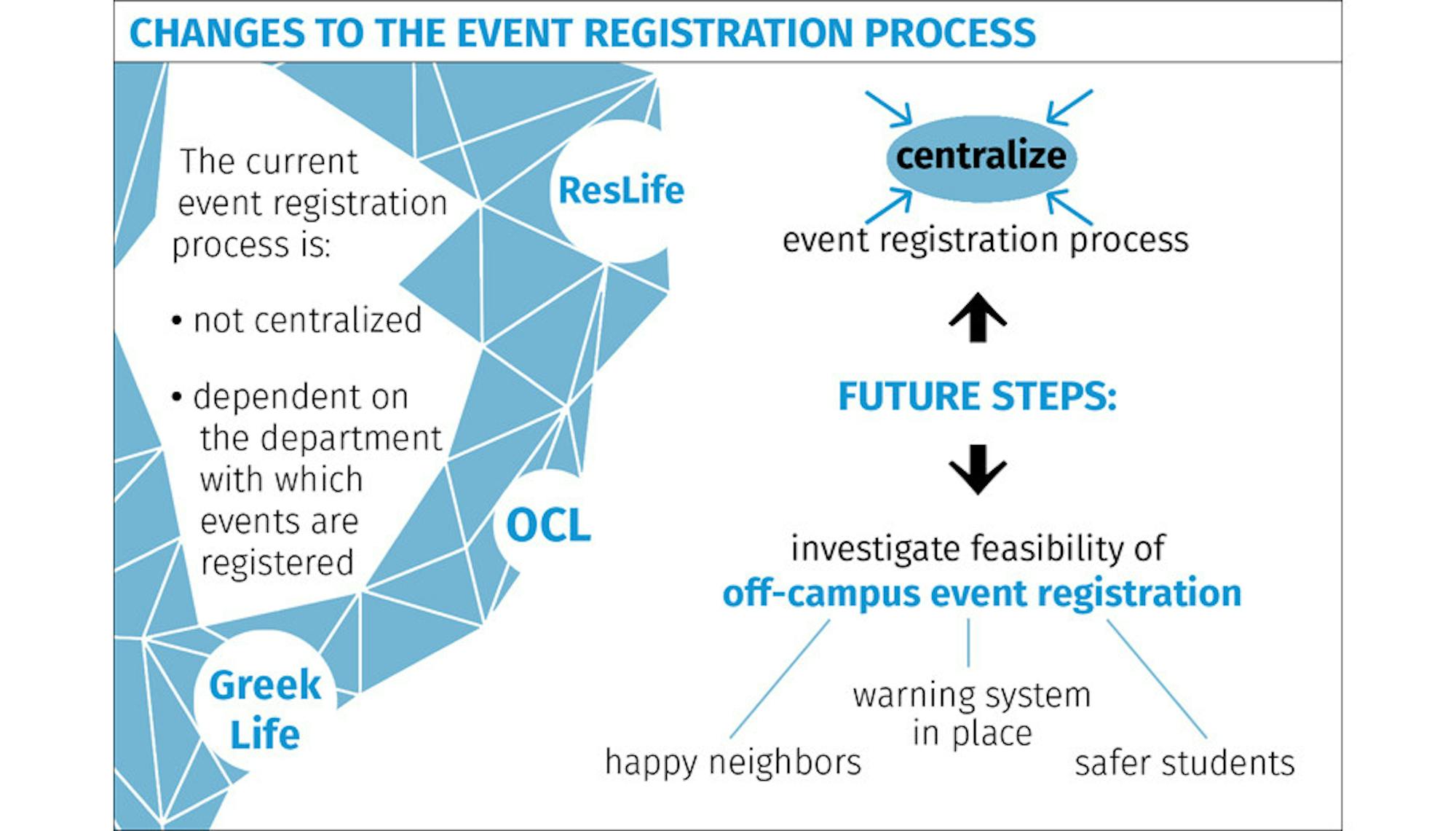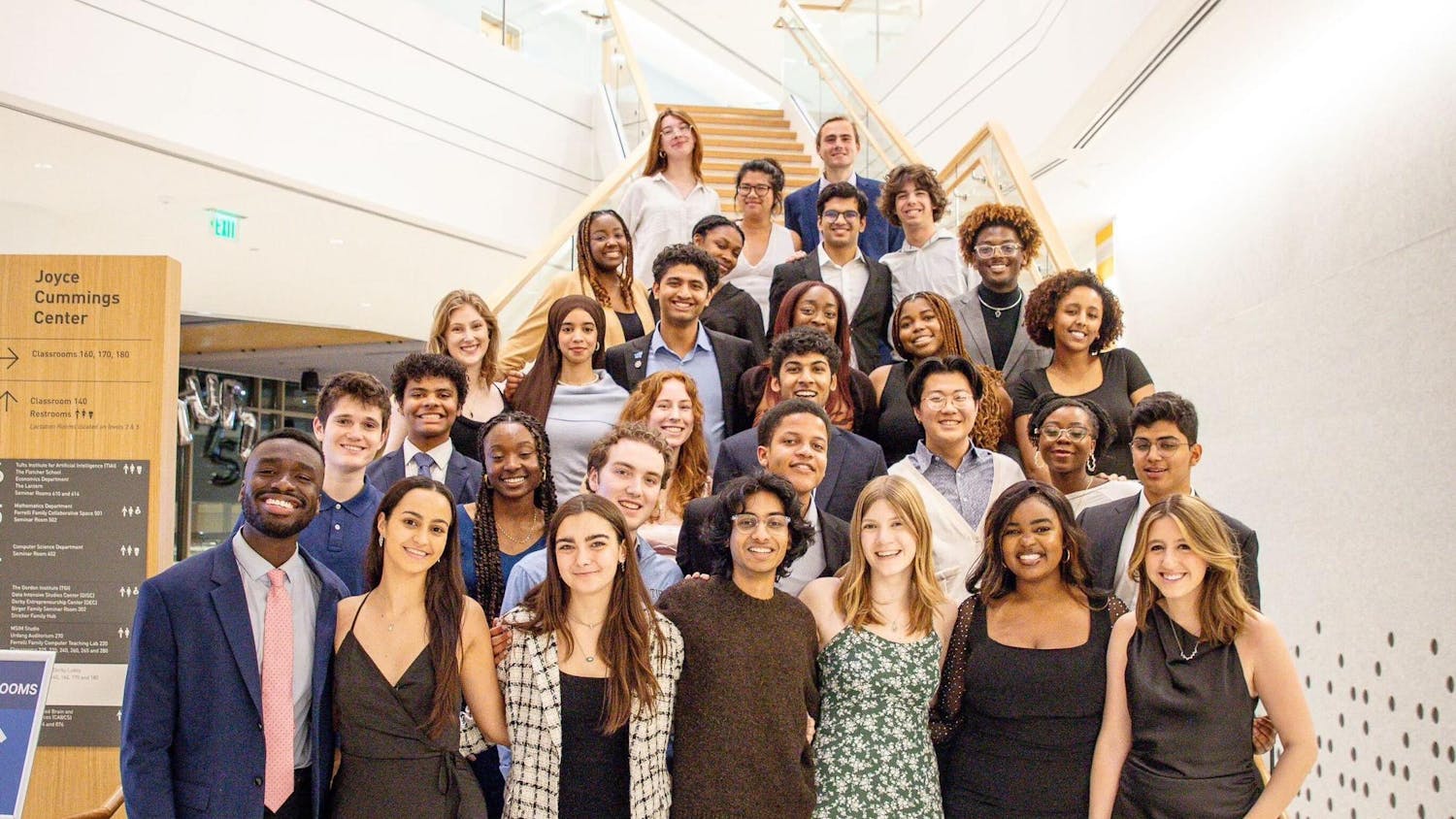Various university offices will be working this summer to streamline their independent event registration processes into a centralized, simplified process by the beginning of the fall semester.
The new process — a collaboration between the Offices of the Dean of Student Affairs, Fraternity and Sorority Life, Residential Life and Learning (ResLife) and Campus Life (OCL) — will impact the procedure by which students and organizations inform and request permission from the university for on and off-campus events.
According to Judicial Affairs Administrator Mickey Toogood, who is spearheading the centralization process, there are currently several different versions of the event registration process, each of which depend on the office through which a student chooses to register an event.
Toogood explained that students will be able to choose the office with which to register events but that registration will occur via a central registration portal through Tufts Student Life, which will direct the student to the proper resources. He said this will also better allow administrators to help guide students.
“It just keeps students from traipsing around from office to office," Toogood said. "I think putting the burden on administrators to answer those questions — which they should be able to answer much faster than students will be able to — is I think a really important first step.”
Toogood said Tufts hopes to develop a website during the summer that would perform this centralizing function in order to make this process as easy and clear for students as possible.
“Hopefully a lot of these procedural changes will be invisible to students because they’ll just be taken care of," he said. "You’ll just submit the form, and then everything that used to be done by hand or used to involve a couple different meetings will be taken care of by staff members who will then be back in contact with the student to say, ‘you’re ready to go.'"
Toogood said that administrators are also discussing the creation of a voluntary off-campus event registration system. This summer, they hope to work with both the Medford and Somerville communities to assess whether registering events, such as parties at students’ off-campus houses, would benefit all stakeholders, he said.
Health Education Specialist Beth Farrow, who is co-chairing a committee focusing on the off-campus registration process as a part of the university's Alcohol Task Force, explained that the committee has looked at the off-campus registration programs at other colleges and universities as models to help them develop a program for Tufts.
“We had a conference call with [Colorado State]," she said. "We have a lot of their materials … and they really stress kind of the community-university relation part of it, so that’s what we need to work towards now."
Having an off-campus registration program can provide benefits to all parties involved, Farrow said.
“It’s been beneficial for the student’s who participated; it's been beneficial for the local police departments that have collaborated, the communities’ neighbors have had a very positive response to this and the university has benefited, so it’s been sort of a win-win-win for all involved,” she said.
Farrow explained that that students would be incentivized to register off-campus events, rather than keeping them private from the university, such as the implementation of a warning system where students would not be penalized as severely for first-time noise violations.
"If there is a noise complaint [from a neighbor], if you’re a registered party, potentially you get a warning from [Tufts University Police Department] TUPD or the local police department to say, ‘Hey, we got a noise complaint. We’ll give you X amount of time to kind of straighten this out before we come by,’” she said.
While some students may hesitate to allow the administration to oversee off-campus events and parties, Toogood said he feels registering for off-campus events would be advantageous to students.
“[Colorado State] has had a very successful program where students are able to register events with the university and sort of partner with the university and the local police department and manage their events better, so they’ve had fewer events that have gotten shut down and students have faced lesser penalties for violations and things like that,” he said.
Toogood said he believes the university's program can serve as an instructive model.
“I don’t think we can exactly copy what they’re doing in Colorado because their community is different than the Medford/Somerville community, but I think that model is something that we’re looking at when we think about going forward,” Toogood said.
As the administrators move forward with this planning, Farrow said that her committee is hoping to begin collecting student input on the program.
Toogood added that he is excited about the coming changes to the event registration process.
“I think it could be a really great thing for students, and I hope it becomes a resource and that the students feel that it is actually useful to them, and that it has simplified their lives as far as registering for events,” he said.
University offices look to centralize event registration process






